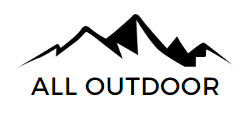When embarking on a camping adventure, many of us focus on gear like tents, sleeping bags, and cooking equipment. However, one essential element that often gets overlooked is water. From hydration to cooking and cleaning, water plays a critical role in ensuring a successful and enjoyable camping experience. Let’s delve into the importance of water in camping, covering hydration, safety, and the ecological impact of water usage.
Hydration: The Cornerstone of Health and Energy
Whether you’re trekking through the mountains or simply relaxing by the campfire, staying hydrated is crucial. Dehydration can lead to a host of problems, ranging from headaches and fatigue to more severe conditions like heat stroke.
- Quantity: The general guideline is to drink at least half a gallon (64 ounces) of water per person per day under moderate conditions. This amount can increase substantially in hot and dry environments or during strenuous activities.
- Quality: Always ensure that the water you’re consuming is clean and free from harmful microorganisms. When sourcing water from lakes, rivers, or springs, always purify it through boiling, filtering, or using water purification tablets.
Safety: Water for First Aid and Fire Prevention
Water is not just for drinking; it’s also vital for various safety measures while camping:
- First Aid: From cleaning wounds to soothing burns, water is an essential component in a first-aid kit. Infections can be prevented with proper wound cleaning, and a cold compress can offer relief from minor injuries.
- Fire Prevention: Water is crucial for extinguishing campfires safely. Always ensure you have enough water to put out your fire completely before leaving your campsite or retiring for the night.
Cooking and Cleaning: The Role of Water in Campsite Comfort
Camping doesn’t mean you have to give up delicious meals or personal hygiene.
- Cooking: Whether you’re boiling pasta or making camp coffee, water is a fundamental ingredient in campsite cooking. It’s often overlooked when planning meals, so be sure to include water in your cooking calculations.
- Cleaning: A limited water supply doesn’t mean you can’t maintain hygiene. Small amounts of water can be used efficiently for washing hands, dishes, and even taking quick «sponge baths.»
Ecological Impact: Being a Responsible Camper
Water is a finite resource, and its responsible usage is crucial for environmental sustainability. Here are some tips for eco-friendly water use:
- Pack It In, Pack It Out: Carry reusable water containers rather than single-use plastic bottles.
- Economize: Use water sparingly. Opt for biodegradable soap and ensure you wash at least 200 feet away from any water source to minimize pollution.
- Leave No Trace: Don’t pollute natural water sources, whether by washing or disposing of waste. Follow Leave No Trace principles to ensure you’re not negatively impacting the environment.
Conclusion
Water is not just a basic necessity—it’s the lifeblood of a successful camping trip. Ensuring that you have sufficient, safe, and responsibly-sourced water can make the difference between an enjoyable adventure and an ordeal. Before your next camping excursion, take the time to plan your water needs carefully. Your health, safety, and the environment will thank you.

